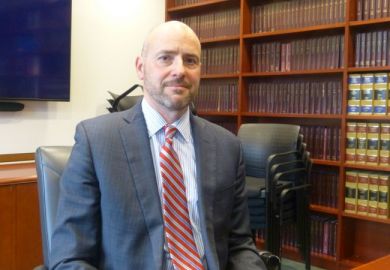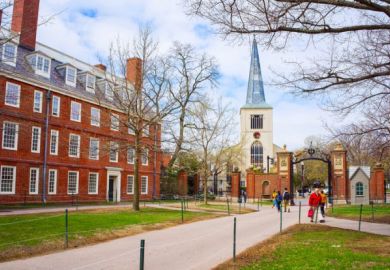The University of Southern California acknowledged that it has been accepting about a dozen students a year as athletes who don’t actually compete in sports, many with ties to donors beyond the nationwide admissions scandal.
Such admitted students, USC said after a review, were falsely presented as athletes “due to the past giving and/or potential future generosity of their families”.
USC outlined its findings just before the most prominent defendant in the scandal, television actress Lori Loughlin, was sentenced to prison along with her husband for paying $500,000 (£400,000) to get their daughters admitted to USC.
Ms Loughlin, connected by internet link from California, received a two-month sentence after tearfully telling a federal judge in Boston that she was sorry for hurting her daughters and prospective students more broadly.
“I now understand,” Ms Loughlin told the judge, Nathaniel Gorton, “that my decision helped exacerbate existing inequalities in society in general, and the higher education system more specifically.”
Her husband, Mossimo Giannulli, a fashion designer, was sentenced by Judge Gorton just ahead of her. Mr Giannulli also apologised and received a five-month term, reflecting his greater level of involvement in arranging the fraud.
The couple was among 56 people, mostly wealthy parents, accused in the case of working with William Singer, a Los Angeles-area admissions adviser, to help their children gain entry to elite colleges.
Most of the cases, including those of Ms Loughlin and Mr Giannulli, involved Mr Singer paying sports coaches at the colleges to falsely portray the children as eligible for admission on the basis of athletic ability. Some cases involved arranging for falsified scores on college admissions tests. The students were not necessarily aware of the actions of their parents, prosecutors said.
Despite initial outrage in Congress after the scandal was first revealed, US colleges have largely beaten back any attempts to impose new regulations on their admissions processes and donors who legally take advantage of them.
But some colleges, now including USC, have announced voluntary policy changes, such as requiring additional approvals within their admissions processes for applicants who receive sports-related preferences.
A growing number of US colleges, in a trend largely separate from the admissions scandal, also have been dropping or de-emphasising their use of standardised admissions tests.
USC had the most cases of any institution in the nationwide scandal, with 33 students linked to Mr Singer’s operation. In its report on its internal investigation, USC says that 21 of those students were found to have committed some policy violation, with penalties ranging from deferred suspension to expulsion.
The university also says that it admits an average of 240 student athletes per year, with about 12 each year not later joining a team. While donor expectations were involved in many, some others involved personal friendships, and no cases other than Mr Singer’s clients involved “an explicit quid pro quo”, USC says.
After Mr Singer’s activities were discovered by federal investigators, he began cooperating and helping to ensnare the parents who hired him.
Prosecutors have won plea agreements with 41 defendants. Most of them initially denied the charges, and Ms Loughlin and Mr Giannulli waged an especially aggressive defence at first. But they eventually accepted the settlement rather than prolong their public spotlight and risk the potential of 20-year prison sentences.
“I thought I was acting out of love for my children,” Ms Loughlin told Judge Gorton at her sentencing hearing. “But in reality, it only undermined and diminished my daughters’ abilities and accomplishments.”
Register to continue
Why register?
- Registration is free and only takes a moment
- Once registered, you can read 3 articles a month
- Sign up for our newsletter
Subscribe
Or subscribe for unlimited access to:
- Unlimited access to news, views, insights & reviews
- Digital editions
- Digital access to THE’s university and college rankings analysis
Already registered or a current subscriber?







